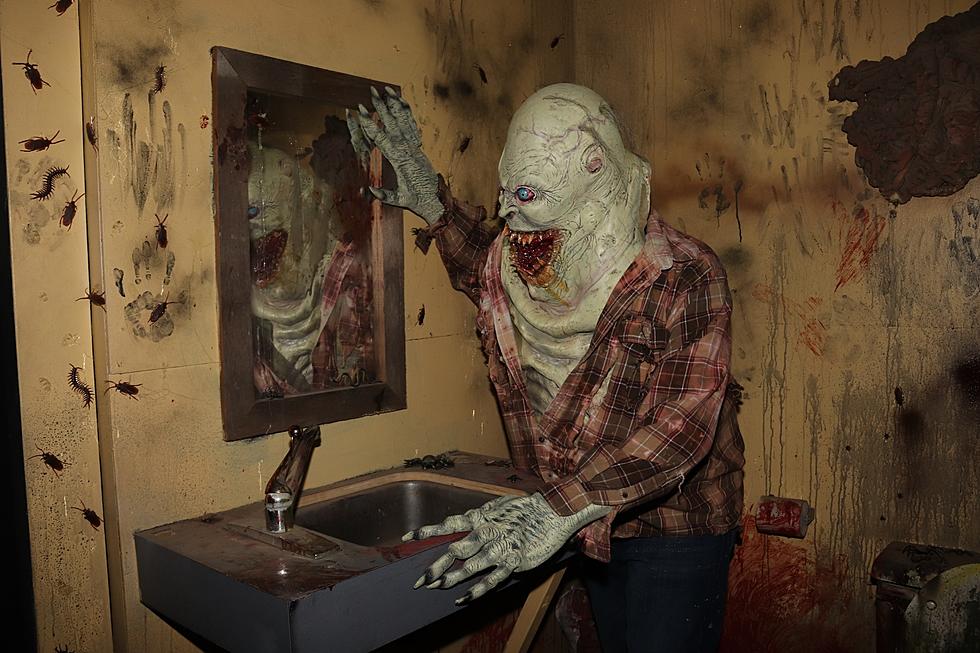
A Film on the Creator of ‘Dark Knight Returns’ and ‘300’ Is Coming to Theaters
After the original DC writers and artist who created Batman and Superman, and the Silver Age icons who built the Marvel Universe, there may not be a single more important American comic book creator in history than Frank Miller.
Although Miller did not necessarily create a ton of globally iconic characters, he’s had a massive impact on heroes at both Marvel and DC: Daredevil at the former, thanks to his groundbreaking run on that title in the early 1980s, and Batman at the latter, via his enormously influential graphic novels The Dark Knight Returns and Year One. Miller’s work on both those characters continues to shape their modern portrayals, both in comics and onscreen. Marvel is currently producing a Daredevil: Born Again TV series, while DC has strip-mined The Dark Knight Returns for images, themes, character designs in almost every single Batman movie they’ve made to date — and Zack Snyder says he’d like to return to the company some day to direct a true adaptation of the book. (He kinda sorta already made one version of the material in Batman v Superman: Dawn of Justice.)
So if any comic-book artist deserves a documentary, it’s Miller, whose bibliography also includes award-winning (and film-inspiring) books series Sin City and 300. After what appears to be an extremely long development process — the film contains footage dating at least as far back as 2016 — Frank Miller: American Genius is finally opening in theaters this week. After that, I assume it will be available to rent or stream more widely, and in that context, I think it will be of interest to comic-book fans — with some notable caveats.
Despite my familiarity with Miller’s work, American Genius did fill in a lot of gaps in my own knowledge about Miller himself, and how he broke into the mainstream comics industry in the 1970s. He received early guidance from famed Marvel and DC artist Neal Adams, who was anything but impressed with the young Miller’s talents; in the film he laughs about how terrible Miller’s early illustrations were, and how he flat-out told him to redraw a story that was not up to par, only for Miller to inform him it had already been accepted for publication.
I also never knew that Miller’s earliest work for Marvel included the famous cover to ROM #1, an assignment Miller snagged after several other artists tried and failed to deliver on the brief provided by editor Jim Shooter. Miller also talks in the film about his struggles with alcoholism and its effect on his artwork especially, a subject that was a total surprise to me. Artists and friends who appear in the documentary to speak glowingly about collaborating with Miller include Klaus Janson, Dave Gibbons, Geof Darrow, Dan DiDio, Jessica Alba, Rosario Dawson, and Zack Snyder.
Neal Adams passed away in 2022, and is interviewed in the film. So is Stan Lee, who passed away in 2018. I’m not sure why this documentary took so long to emerge, but it does feel a little bit out of date. Miller is seen writing and illustrating projects that were published upwards of five years ago; although it is fascinating to see him splattering paint with brushes or writing dialogue longhand, it would be nice to see more about what he is up to now.
Miller himself comes off well; if not as a “genius” then certainly a gifted and humble artist, and a true evangelist for the comics medium. (In one of his more endearing traits, he tends to wear T-shirts emblazoned with the logos and characters of his own creation.) Part of the reason he comes off so well might have something to do with the fact that Frank Miller: American Genius was directed by Silenn Thomas, an associate producer on the film adaptation of Miller’s 300 and the CEO of his production company.
READ MORE: Superhero Movies That Are So Bad They’re Good
She obviously has a vested interest in making Miller look a figure who lives up to her film’s bold subtitle, and perhaps in not digging too deeply into Miller’s more controversial work — like his disappointing film adaptation of the Will Eisner comics series The Spirit or his infamous graphic novel Holy Terror, which was conceived as a book about Batman fighting Islamic terrorists and then published with all of the Batman material stripped out of it. (Miller replaced the Dark Knight with a similar figure of his own creation called “The Fixer”). These projects are mentioned, but only briefly, with Miller quickly waving them away by claiming he wasn’t at his best when he made them.
I’m not sure Frank MIller: American Genius represents the best of what could be said or explored about Miller either. A more critical filmmaker surely would have made a more complex portrait of the man and his impressive but imperfect body of work. Perhaps that was not Thomas’ goal. Miller’s comics, after all, tend to expand the already larger-than-life heroes of comics until they take on mythical proportions. In some moments, this documentary lends a similar quality to its subject.
Frank Miller: American Genius screens Monday, June 10 at Cinemark theaters and will feature a live introduction with Frank Miller moderated by Rosario Dawson. For more information, check the Cinemark website.






